Native American Heritage Month

We would like to begin by acknowledging the land on which the University at Buffalo operates, which is the territory of the Seneca Nation, a member of the Haudenosaunee/Six Nations Confederacy. This territory is covered by The Dish with One Spoon Treaty of Peace and Friendship, a pledge to peaceably share and care for the resources around the Great Lakes. It is also covered by the 1794 Treaty of Canandaigua, between the United States Government and the Six Nations Confederacy, which further affirmed Haudenosaunee land rights and sovereignty in the State of New York. Today, this region is still the home to the Haudenosaunee people, and we are grateful for the opportunity to live, work, and share ideas in this territory.
November is National American Indian Heritage Month. The Office of Inclusion and Cultural Enhancement joins in the celebration of the rich ancestry and traditions of Native Americans and hopes to raise awareness about the challenges Native people experience to this day, and ways they have worked to overcome them.
From 1916 with "American Indian Day" celebrated for the first time in the state of New York, to the official " Native American Heritage Month" recognized in 1990 we want to explore resources to learn about Indigenous history and its heritage.
Also known as American Indian and Alaska Native Heritage Month, during the month of November we recognize the history, culture, and contributions of our nation's first people.
Jacobs School of Medicine and Biomedical Sciences and the Department of Indigenous Studies at UB collaborated in the Inaugural Indigenous Health Symposium 2024 “Perspectives on Reproductive Justice and Maternal Health”. Please review our moderators and panelists bios.
Moderators
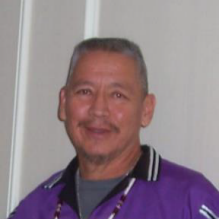
Pete Hill
With over 29 years working at the Native American Community Services of Erie and Niagara counties NACS as the Project Director, Pete has worked on substance abuse, suicide, and teen pregnancy prevention. His work focuses on community development, and he has devoted his efforts to understanding and overcoming residual impacts of historical trauma. He has integrated Native American cultural teachings into the organizations program design to promote wellness and healing.
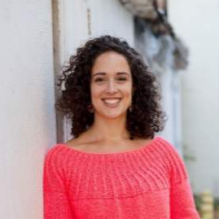
Meredith Palmer, MPH, PhD
Dr. Palmer is an Assistant Professor in the Department of Indigenous Studies at the University at Buffalo. Her research is centered on the role of science and technology in histories of dispossession and in the ongoing colonization of Indigenous people, and particularly of Haudenosaunee (Iroquois) people. Dr. Palmer combines rigorous archival work, careful community commitments, and Indigenous methodologies of oral history and critical analysis to narrate genealogies of the spatial politics of colonialism and occupation among the Haudenosaunee.
Panelists
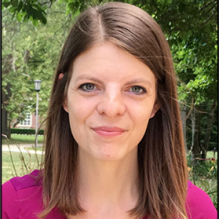
Brianna Theobald, PhD
Dr. Brianna Theobald is an associate professor of history and affiliate faculty in the Susan B. Anthony Institute for Gender, Sexuality, and Women’s Studies at the University of Rochester. She is an award-winning teacher and researcher in the fields of U.S. women’s and gender history, the history of Native America, and the history of reproduction. Her first book, Reproduction on the Reservation: Pregnancy, Childbirth, and Colonialism in the Long Twentieth Century was published by the University of North Carolina Press in 2019 and received awards from the American Society for Ethnohistory, the Coalition for Western Women’s History, and the Western History Association.
Theobald’s research on Native women’s history has appeared in academic publications including the Journal of Women’s History and The Pacific Historical Review, and she has also published in venues including Time Magazine and the Washington Post. Her current book project is an Indigenous history of Oklahoma following statehood, told from the vantage point of the organizations and institutions that Indigenous women built and sustained across generations
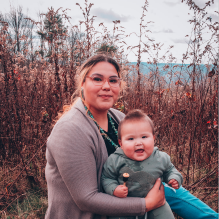
Shavonne stevens, CD, CLC
Shavonne Stevens is the founder of Love What I Doula, where she provides culturally sensitive birth and postpartum services on the Cattaraugus Reservation. With specialized training in Full Spectrum Indigenous Doula support, Shavonne is committed to improving maternal health outcomes for Indigenous families. Through partnerships with Genesee County Community Doulas and Erie Niagara AHECs Birth Equity Project, she addresses disparities in access to doula care and strives to enhance the birth experience. Her compassionate, client-centered approach fosters a supportive environment for families during pregnancy, birth, and the postpartum period.
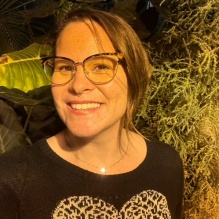
Ashley Lickers, Haudenosaunee midwife
Ashley Lickers is a Haudenosaunee midwife working under the exemption from the Cayuga nation of Six Nations of the Grand River territory. She provided prenatal, perinatal, and postpartum care to Indigenous families across southern Ontario for years before turning her focus to Indigenous Midwifery Education. She now works to create community-based programming to bring midwifery education to communities across Turtle Island.
Symposium Program
You can contact 7th Generation Operation at 7thgenjsmbs@gmail.com
Nations
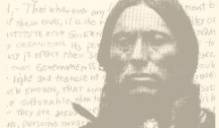
Education
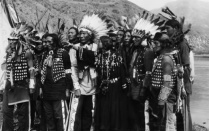
Services
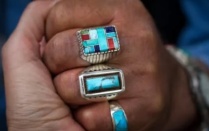
Opportunities
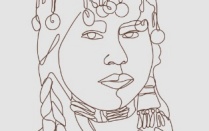
At UB
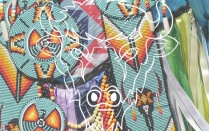
Research
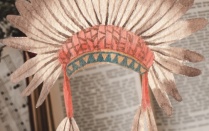
Stories
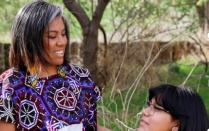
In Buffalo, NY

